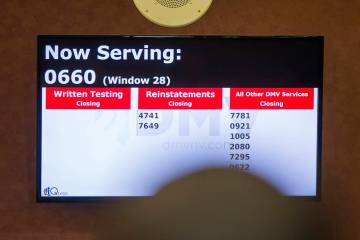EDITORIAL: What Democrats won’t mention about Medicare for all
So-called Medicare-for-all would make private health insurance illegal. That’s one of the details Democrats don’t like to mention when advocating that the government nationalize one-sixth of the U.S. economy.
Last week, more than 100 House Democrats, including Nevada Rep. Dina Titus, introduced such a bill. The goal — providing health care for everyone — is noble. The path they demand to get there isn’t.
Democrats often assert that health care is a right. But actual rights don’t impose obligations on others. You have a right to secure shelter. You don’t have a right to force somebody else to build a house for you. There’s a big difference between a right to health care and a right to life, liberty and property. Someone has to pay for it.
Medicare is already one of the biggest providers of health care in the United States. One of the ways the program keeps costs down is by paying doctors less than they receive from private insurers. For instance, a 2016 study in The Journal of Texas Medicine compared Medicare reimbursement rates with private payers in Texas. It found that “private payers average between $1.15 and $2.35 per $1.00 (of) Medicare spending.”
Medicare-for-all would be a substantial pay cut for physicians. If Congress passed it and gave doctors a choice, many would continue to accept and prioritize private insurance. That’s why this bill doesn’t give doctors an option. It would eliminate the nation’s 177 million private insurance plans. Doctors would no longer have the freedom to offer their services as they pleased. They could do their jobs only as — and for the compensation — approved by government functionaries. This would essentially eliminate patient choice and make medical providers indentured servants. It’s a reminder that the government can’t guarantee a “right” to something such as health care without limiting the freedom of others.
It’s highly revealing that this proposal depends so heavily on coercion and compulsion designed to prevent people from circumventing the system.
There’s also the question of cost. It’s such a big question, the bill doesn’t even try to address it. A study from the Mercatus Center at George Mason University found that Medicare-for-all would require increasing the payroll tax by 10 percentage points, imposing a 20 percent value-added tax, which is a supercharged sales tax, and hiking income tax rates by 10 percent. That’s not a menu of options. Officials would need to implement all of those tax hikes. That’s because imposing such a plan would double the federal budget.
Defenders of Medicare-for-all argue that the savings gained by eliminating health insurance companies and imposing price controls would simply be shifted to support the new system at virtually no extra cost. Anybody gullible enough to buy such a fantasy will also be interested in some beachfront property near Gabbs, prime Bigfoot country.
The idea of “free” stuff is eternally appealing. The inevitable expenses and the erosion of freedom and liberty, however, are not.




























